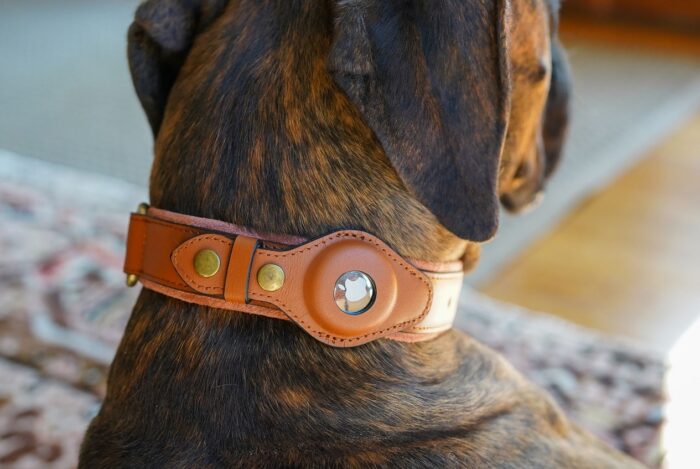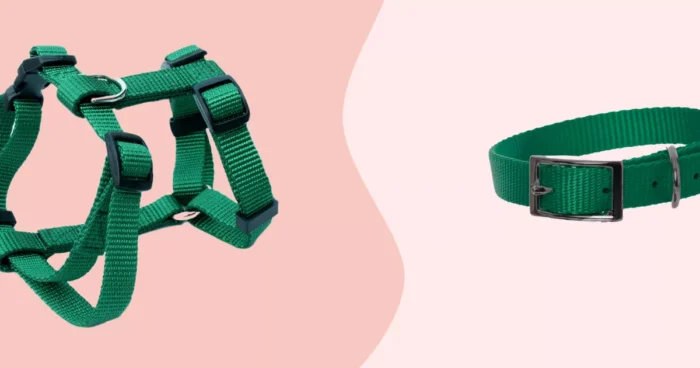
Walking your dog can be an enjoyable experience, providing both physical exercise and mental stimulation for your furry friend. However, for many dog owners, the experience can be marred by the common problem of leash pulling. It’s not uncommon for dogs to exert their energy by pulling on the leash, making the walk frustrating and less enjoyable for both you and your pet. To address this issue, dog owners often debate whether to use collars or chest harnesses to help control leash-pulling behavior.
Exploring the realm of canine training, a study delves into the nuanced dynamics of leash-pulling behavior in dogs, specifically comparing the efficacy of collars versus chest harnesses. The research aims to unravel the impact of these two commonly used walking tools on the behavior of our four-legged companions during walks.
In this article, we will delve into the world of dog walking accessories, comparing collars and chest harnesses and their effects on leash-pulling behavior in dogs.
The Collar

The traditional collar is a widely used dog accessory, primarily designed for attaching identification tags and providing control during walks. Most collars are made of various materials, including nylon, leather, or even metal chains. They are easy to put on, lightweight, and don’t hinder your dog’s natural movements. However, collars can exert pressure on a dog’s neck, potentially leading to health concerns, especially if the dog is prone to pulling on the leash.
Effects of Collars on Leash-Pulling Behavior
Collars can exacerbate leash-pulling behavior in some dogs. When a dog pulls on a collar, the pressure is concentrated around their neck, potentially causing discomfort or injury. This pressure can stimulate a dog’s natural opposition reflex, causing them to pull even harder. Over time, this can result in a cycle of increased leash-pulling and discomfort.
In addition to the potential harm caused by leash-pulling, collars can also pose risks to certain breeds, particularly those with short muzzles, like Bulldogs and Pugs. These breeds are susceptible to respiratory problems, and collars can further restrict their airflow, potentially leading to issues like brachycephalic obstructive airway syndrome.
The Chest Harness

Chest harnesses are designed to distribute the pressure more evenly across a dog’s body, particularly around the chest and shoulders. They are usually made of nylon, neoprene, or other comfortable materials and come in a variety of styles, including step-in and over-the-head designs. Chest harnesses have become increasingly popular among dog owners for their potential to reduce leash-pulling and mitigate some of the health concerns associated with collars.
Effects of Chest Harnesses on Leash-Pulling Behavior
Chest harnesses are often praised for their ability to reduce leash-pulling behavior in dogs. By distributing the pressure across the chest and shoulders, a dog harness bundle makes it more challenging for a dog to pull with the same intensity as they can with a collar. This can be especially beneficial for dogs in training, as it allows for better control during walks. Harnesses also help minimize the risk of injury and discomfort that collars can cause.
Many dog trainers and behaviorists recommend using chest harnesses for dogs prone to leash-pulling, as they provide a gentler way to discourage pulling behavior. While they don’t eliminate the need for proper training and consistent reinforcement, harnesses can be a valuable tool in making walks more enjoyable for both the dog and the owner.
Comparing Collars and Chest Harnesses

To help dog owners make an informed decision, let’s compare collars and chest harnesses in various aspects, including their effects on leash-pulling behavior, comfort, safety, and suitability for different breeds and sizes.
Leash-Pulling Behavior:
- Collars: Collars can encourage leash-pulling due to concentrated pressure on the neck, potentially leading to a cycle of increased pulling.
- Chest Harnesses: Chest harnesses distribute pressure more evenly, making it more challenging for dogs to pull excessively, thus reducing leash-pulling behavior.
Comfort:
- Collars: Collars can cause discomfort, especially for dogs that pull on the leash, as they put pressure on the neck.
- Chest Harnesses: Chest harnesses are designed for comfort, with padding and a more even distribution of pressure, making them a comfortable option for most dogs.
Safety:
- Collars: Collars can pose a risk of injury, especially in dogs prone to respiratory issues or those that pull aggressively.
- Chest Harnesses: Chest harnesses are generally safer, as they reduce the risk of injury and discomfort associated with collars.
Breed and Size Suitability:
- Collars: Collars may be suitable for smaller, well-trained dogs that don’t pull on the leash and don’t have respiratory issues.
- Chest Harnesses: Chest harnesses are suitable for a wide range of breeds and sizes, including dogs with short muzzles and those prone to leash-pulling.
Conclusion

In the ongoing debate between collars and chest harnesses, it’s clear that harnesses offer several advantages when it comes to leash-pulling behavior, comfort, and safety. However, it’s important to note that no dog accessory is a one-size-fits-all solution. The best choice for your dog will depend on their specific needs, size, breed, and individual behavior.
If you have a small, well-trained dog that doesn’t pull on the leash and doesn’t have any health concerns, a collar may be a suitable choice. However, if you have a larger dog, a puppy in training, or a breed prone to respiratory issues, a chest harness is likely a better option.
In the end, both collars and chest harnesses can be valuable tools in ensuring your dog’s safety and comfort during walks. Whichever you choose, the key is to prioritize your dog’s well-being and make the walking experience enjoyable for both you and your furry companion.





